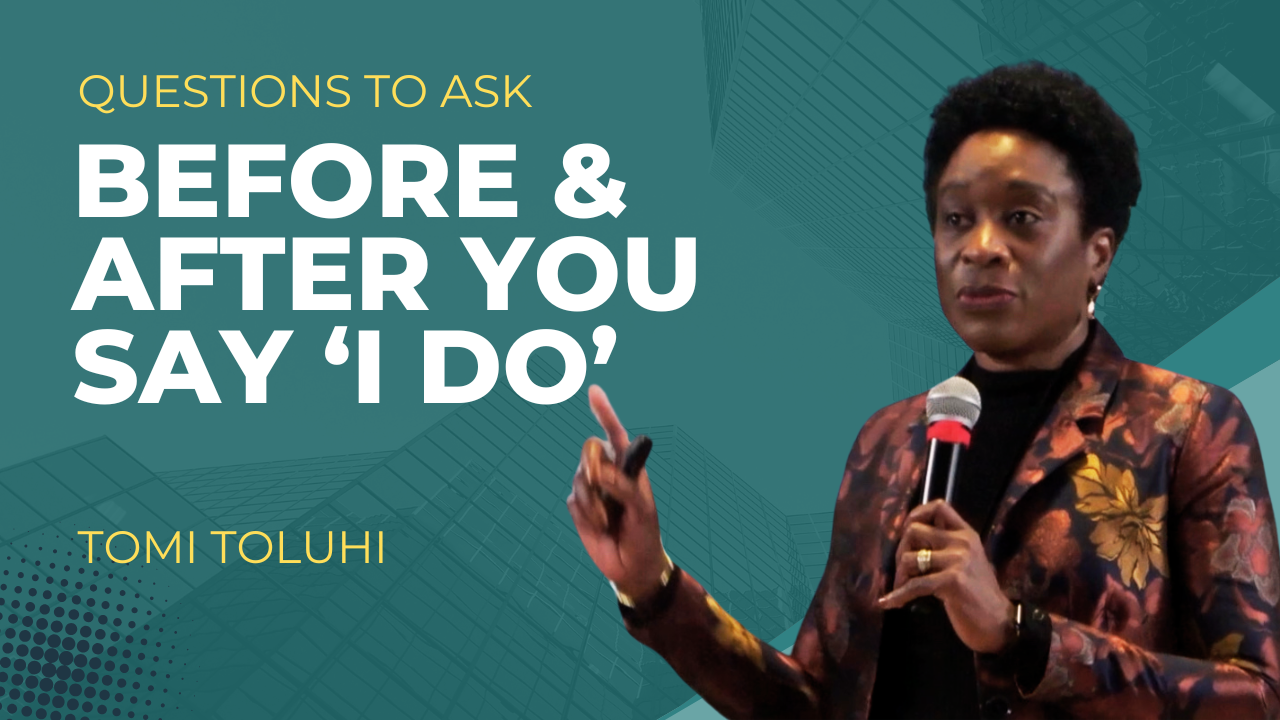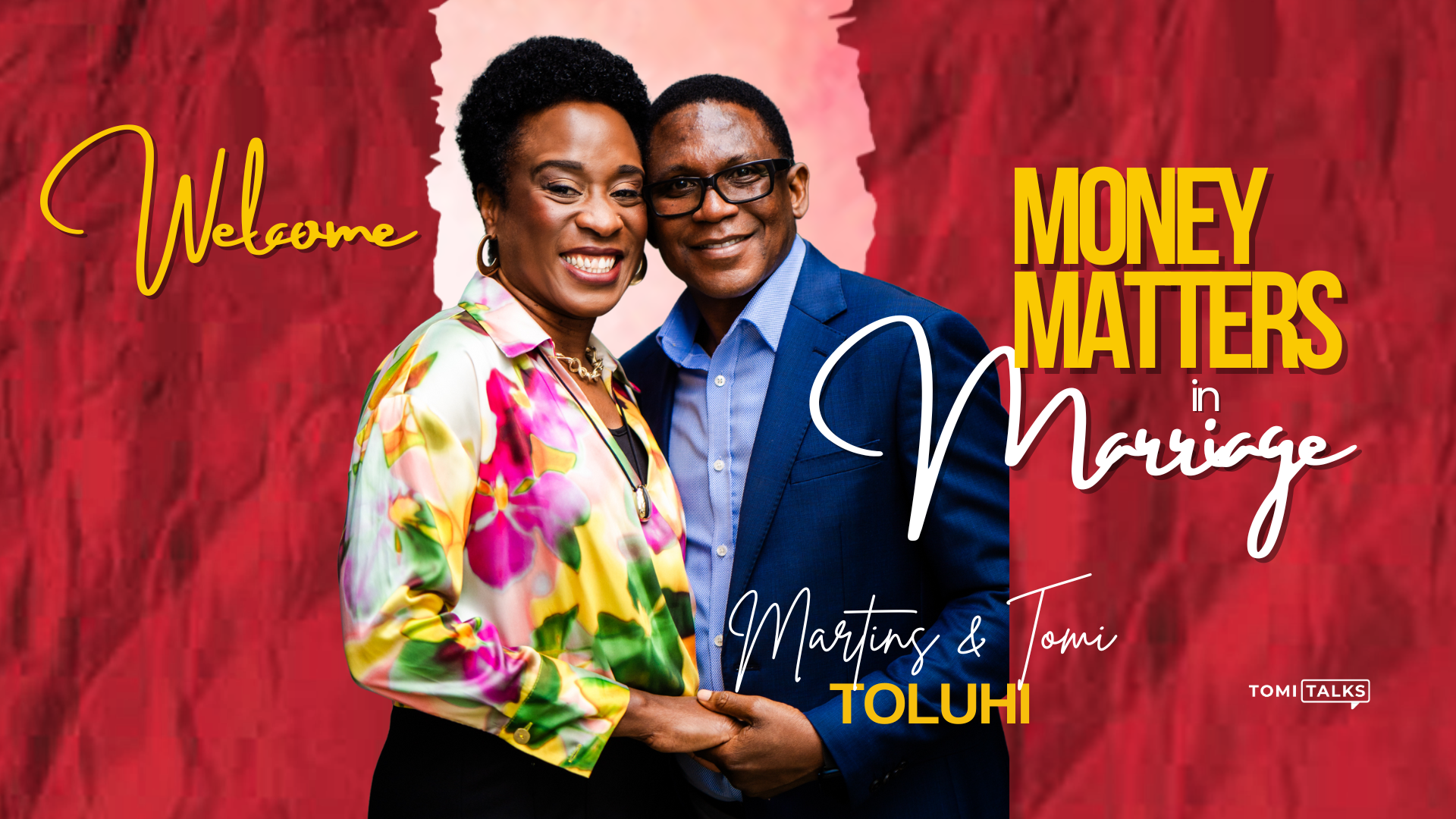Why Christian Marriages Fail
Marriage was designed by God to be a lasting, fulfilling union between two individuals totally committed to Him and to each other. God loves marriage, He created it and He celebrates it at every opportunity in scripture. One of the most profound scriptures about marriage, in my view, is Ephesians 5:31-32. Paul the Apostle, quoting Genesis 2:24, makes an astonishing assertion. ‘As the Scriptures say, “A man leaves his father and mother and is joined to his wife, and the two are united into one.” This is a great mystery, but it is an illustration of the way Christ and the church are one’. This absolutely blows my mind! The relationship between Christ and the Church is the culmination of God’s Masterplan for man; it is God’s finest work hatched in Genesis and revealed in Jesus. To think that God would see fit to use something as human as a marriage between a man and a woman to illustrate such a majestic divine concept amazes me.
An illustration is an example that clarifies or makes a concept easier to understand. Every time a Christian man and woman stand at the altar and say ‘I do’ , instantly they are supposed to become a walking message system, a giant reflection of how Christ loves us and how we respond to Him in love. Our marriages are supposed to make it is easier for a dying world to comprehend the profound love of Christ reflected in His sacrifice for the Church and our heartfelt response to Him. I find myself asking, ‘What am I reflecting? Am I accurately reflecting the selfless, patient, unconditional love of Christ in my marriage?’ That’s a question every Christian husband and wife should consider every now and then. ‘When the world looks at my marriage, what impression do they get about Christ and His Church?’ Many times, in the midst of the ordinariness of living with one’s spouse day in day out; in the midst of raising kids, paying bills and juggling various life responsibilities, we forget just how spiritual marriage is in God’s eyes.
It really touches my heart when I speak to Christian couples who are struggling in their marriages. The Church seems to have become less and less immune to the same marital struggles faced by couples who profess no faith at all. This troubles me. Should it not be a given that if we serve the God who dreamed up the idea of marriage in the first place, we should be able to understand His formula for making it work? Should Christian marriages not be successful by default? If only it were that simple. It has become apparent to me that a Christian marriage is not necessarily one where both parties profess Christianity and say their vows before a priest or pastor. A Christian marriage is one where both parties are committed to practising God’s principles for marriage, and that’s where the rubber meets the road. In some Christian marriages there seems to be a wide disconnect, a chasm between what we know and what we do. We know all the right scriptures and can quote them at the drop of a hat but we are often totally unprepared to live them out when the going gets tough. It seems we want to get the results God promised without doing what God commanded.
Jesus made it quite clear in Matthew 7:24-26 that the marriages that survive the inevitable storms of life are those where the parties involved are prepared not only to hear what He has to say but more importantly to do it. The disconnect has always been in the doing. It is of no consequence what we know if we are unprepared to do it. So why is doing so difficult for us? Why do we love to trumpet what God says our spouse should do and skip over what God says we should be doing? In a spirited exchange between Jesus and the Pharisees in Matthew 19:3-8, He exposed the reason why doing can be so hard.
Pharisees: Is it ever lawful for a man to divorce his wife?
Jesus: Haven’t you read that in the beginning God created humanity male and female? Don’t you remember what the story of our creation tells us about marriage? “For this reason, a man will leave his mother and father and cleave to his wife, and the two shall become one flesh.” If a husband and wife are one flesh, how can they divorce? Divorce would be a bloody amputation, would it not? “What God has brought together, let no man separate.”
Pharisees: Why did Moses explain that if a man leaves his wife, then he must give her a certificate of divorce and send her away, free and clear of him?
Jesus: Moses permitted you to divorce your wives because your hearts were hard. But divorce was an innovation, an accommodation to a fallen world. There was no divorce at creation.
This exchange says it all. Divorce was never in God’s original plan for man. When couples divorce, they advance all sorts of reasons why their marriage is no longer tenable – irreconcilable differences, money problems, sexual problems, abuse, neglect, in-law interference; the list goes on and on. However, when all is said and done, divorce boils down to one thing – hardness of heart of either one or both parties. Hardness of heart is a condition which Christians sometimes unknowingly develop. When our hearts become cold, insensitive, unfeeling, and unyielding to God’s word and the promptings of the Holy Spirit, we run our marriages on the basis of our fallen human nature and the inevitable result is disaster. It is not storms that destroy marriages, it is our unwillingness to yield to what God wants us to do in the midst of the storm because it is inconvenient, requires humility, demands sacrifice or is downright difficult, that inevitably leads to the unravelling of a Christian marriage.
Marriage is not easy; it has never been. Anyone who tells you otherwise is being plain dishonest. Regardless of how wonderful you and your spouse are, marriage requires an ongoing willingness to sacrifice for the benefit of the other person, even when it is inconvenient. Often it means taking your eyes off your own legitimate needs to shine the spotlight on the needs of your spouse and meet them. Sometimes, it demands uncommon humility when you have to serve your spouse like Christ served His disciples and washed their feet. Time and again it requires a heartfelt devotion that makes you see the good in your spouse even when they and the world want to focus on their shortcomings. Always, it requires a forgiving heart to overlook the inevitable faults of your spouse and still respect and celebrate them wholeheartedly. All of this requires a sensitive, generous heart which can only come from hearing and following the promptings of God. What is God asking you to do in your marriage today? Whatever it is, do not harden your heart. The rewards of a true Christian marriage are well worth the investment.










